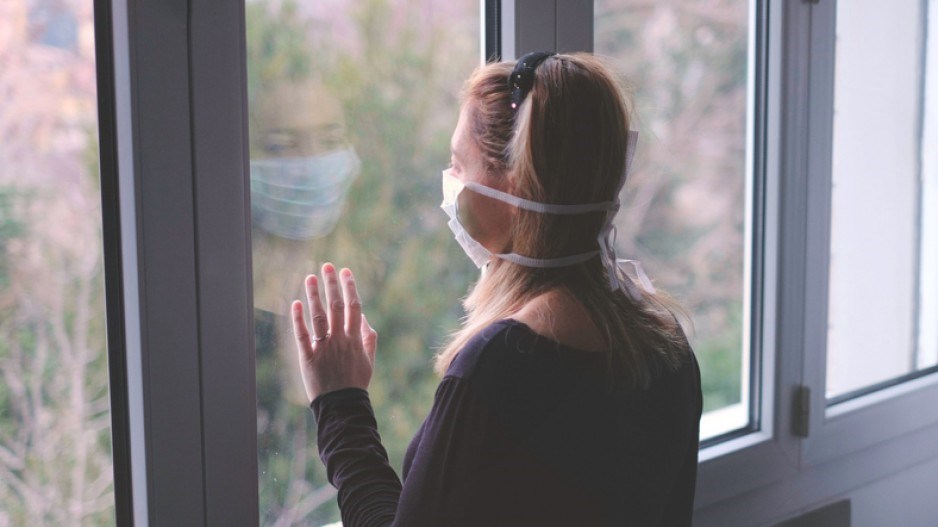Canadians’ psychological distress, depression, anxiety and post-traumatic stress symptoms have increased since the start of the COVID-19 pandemic, a new UBC study has found.
“While COVID-19 self-isolation and other restrictions are crucial public health measures to control the spread of the virus, they have been shown to have significant mental health consequences,” the study said.
The news comes as B.C. COVID-19 infection numbers continue to climb and voices grow louder for stricter measures to smooth the infection curve.
Provincial health officer Dr. Bonnie Henry Nov. 17 reported 717 new cases of COVID-19 for a total of 23,661 cases in British Columbia.
"There are 6,589 active cases of COVID-19 in the province,” she said. “There are 198 individuals currently hospitalized with COVID-19, 63 of whom are in intensive care. The remaining people are recovering at home in self-isolation.”
Henry announced 11 new COVID-19 related deaths, for a total of 310 B.C. deaths.
UBC researchers, working with the Canadian Mental Health Association, surveyed 3,000 adults across Canada. They found while mental health generally worsened with the pandemic, there has been a greater impact on those who spent time in voluntary self-isolation or mandated quarantine.
“Two out of five, or 37% of participants reported having worse mental health after the pandemic started,” UBC School of Nursing research assistant Zachary Daly said. “But this rises to 54% among those who had to isolate due to experiencing COVID-19 symptoms. Those who quarantined due to contact with someone with symptoms of COVID-19 experienced the highest rates of recent suicidal thoughts, at 28%, compared with 5% among those who have not had to quarantine or isolate.”
The highest prevalence of worsened mental health was reported among people reporting their household was COVID-19 self-isolating due to someone else in the household experiencing symptoms of COVID-19.
Crucially, researchers found, those ordered to isolate because they experienced symptoms of COVID-19 were at greater risk for recent self-harm than others. And, people who quarantined due to recent international or out-of-province travel did not have significantly worse mental health or elevated risks of suicidal ideation or self-harm.
“People who quarantine due to potential direct exposure are clearly dealing with greater levels of distress,” nursing assistant professor and principal investigator Emily Jenkins said.
“They aren’t necessarily having COVID-19 symptoms, but they may be very concerned about stigma should they have a positive result,” Jenkins added. “They might also be afraid of being cut off from their friends and family, or being unable to provide care for people in their circle who may need it.”
She said the process of quarantining itself and the experience of being cut-off from others may also be contributing to mental health issues.
“We need to be responsive to these types of stressors when using quarantine and isolation measures to fight this pandemic,” Jenkins said.
The paper suggests providing enhanced mental health supports for those coming out of isolation.
@jhainswo




